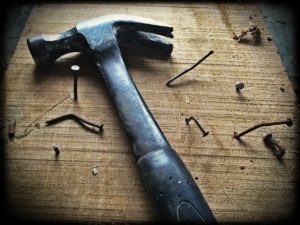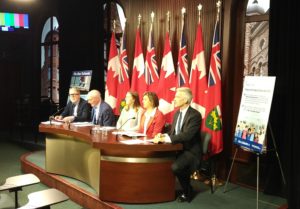 The photo here shows a downtown Toronto water pipe exploding last winter. The hydro vault around the corner from me caught fire this fall. When dramatic incidents happen, we come to understand, up close, why we should all care about aging infrastructure. Standing in the dark, knee deep in water we say “I get it!”
The photo here shows a downtown Toronto water pipe exploding last winter. The hydro vault around the corner from me caught fire this fall. When dramatic incidents happen, we come to understand, up close, why we should all care about aging infrastructure. Standing in the dark, knee deep in water we say “I get it!”
I remember as a child knowing when we’d crossed the border to the United States because the ride got a lot bumpier. Now it is our highways that are a rough ride. Highways take the brunt of our commuting in cars because of a lack of fast, reliable public transportation.
School buildings are public infrastructure owned by taxpayers and are the hubs that allow us to educate our children and build a strong economy.
Taxpayers want dependable electricity, clean water and excellent education for their children and grandchildren.
But are there even more important reasons why we should care about infrastructure? Yes!
• Poor infrastructure affects our economy. New businesses to Canada want to see a solid infrastructure in place before they’ll invest. According to Dominque Gautier of Roland Berger Canada, the most important role the government can take right now is to incent long-term investors to focus on Canadian infrastructure. Continue reading









